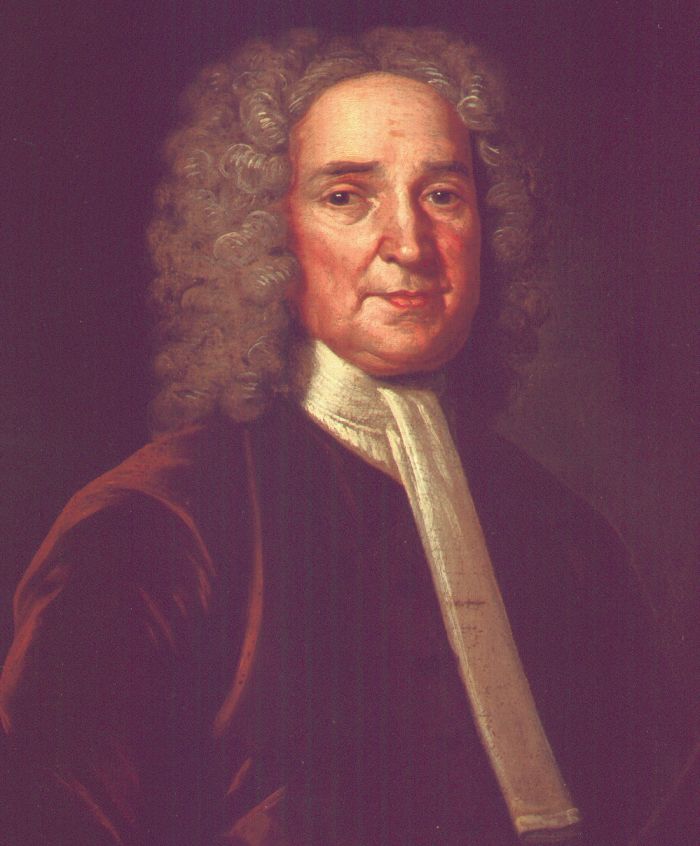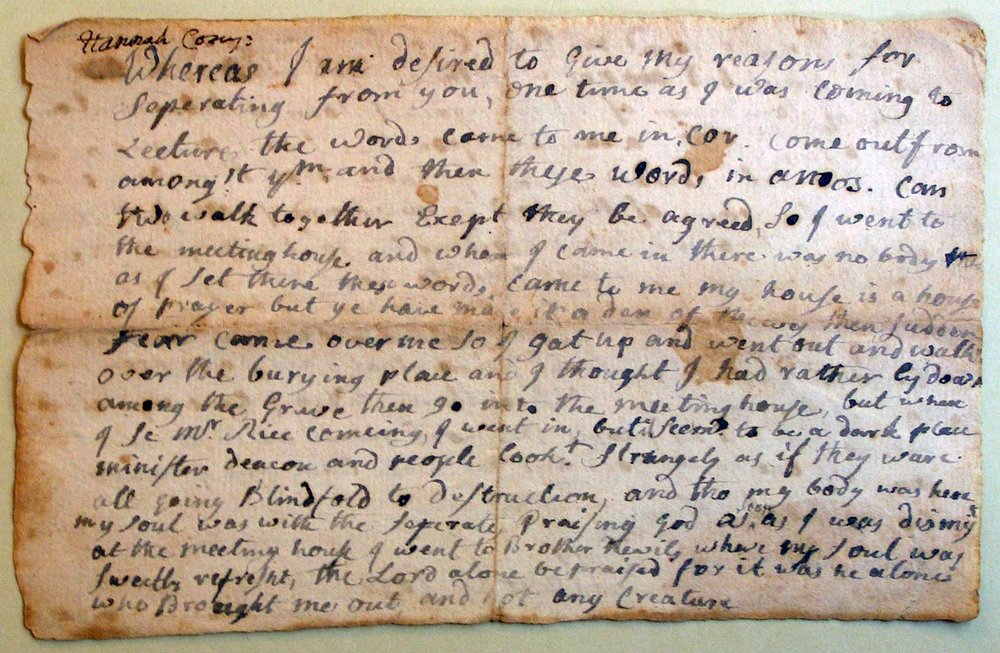Authors:
Historic Era: Era 2: Colonization and Settlement (1585-1763)
Historic Theme:
Subject:
Special Issue - George Washington Prize 2018 | Volume 63, Issue 2


Authors:
Historic Era: Era 2: Colonization and Settlement (1585-1763)
Historic Theme:
Subject:
Special Issue - George Washington Prize 2018 | Volume 63, Issue 2
"For my Part, I can’t but think ... That it is highly Incumbent on all who are not Seized with a Vertigo, to Stand upon their Guard, and in the most ardent Strains to lift up their Voice to the Most High, when the Religion of the Bible is like to be laid aside, for Some present immediate Inspirations—And not only so, but that Men should be often, and earnestly call’d upon and caution’d to Avoid that New Light which will lead Us into Darkness." —JOSIAH COTTON TO SAMUEL MATHER, 1742

Deep in thought, Hannah Corey stood alone among the gravestones of the Sturbridge, Massachusetts, burial ground, gazing across the common at the Congregational meetinghouse. She and her husband, John, had affiliated with the church in the west parish of Roxbury by owning the covenant shortly after their marriage in 1741. Two years later, they moved to the recently settled frontier of central New England and proceeded to join the Sturbridge church in full communion. They had presented each of their four children for baptism shortly after their births. Now, during the fall of 1748, Corey faced serious—even supernatural—misgivings about her place within the sole, tax-supported religious institution in town.

Corey had arrived early that afternoon for Caleb Rice’s weekday lecture. As she sat in the empty pews awaiting the Sturbridge minister and her neighbors, the words of Jesus’s stern rebuke to the moneychangers in Luke 19:46 suddenly darted into her mind: “My house is the house of prayer but ye have made it a den of thieves.” Corey had a strong intimation that this was no ordinary meditation, daydream, or idle musing. Instead, she interpreted the scriptural words as an oracular communication from the Holy Spirit. It was the third revelation she had received that day. Two other biblical passages had impressed themselves on her mind as she walked along the road to the meetinghouse. Amos 3:3 and 2 Corinthians 6:17 spoke directly to her reservations regarding the fitness of the Sturbridge church. “Can two walk together, Except they be agreed”? “Come out from amongst them.” The words thundered in her ears. Could she continue to walk with her neighbors in Christian fellowship?
Was God commanding her to leave the church? With mounting concern, Corey confronted the troubling possibility that she had been worshipping for years in a den of thieves. “I thought,” she later recalled, "that I had rather ly down among the Graves than go into the meeting house.” So she fled to the